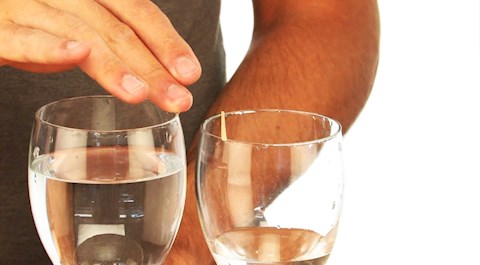Anonymous
Apr 3, 2020
How come a glass rings if you run your wet finger around the rim?
Like absentmindedly drumming on a tabletop, idly running a finger around the rim of a glass can make a kind of music—an otherworldly, ghostly music. How come?
1 view

1 view
1 answer
Sort By
Anonymous
Apr 3, 2020
Sound waves are the result of vibrations coursing through a material, whether that material is metal, wood, or glass. That's why when we strike a tuning fork, which produces a similar ringing sound, we can actually see and feel the tuning fork shaking. The sound reaches our ears because the tuning forks vibrations make the air around it vibrate. Waves of air molecules strike our eardrums, causing them to vibrate, too.
When you run your wet finger around the rim of a wineglass or crystal goblet, it's a lot like tapping the glass repeatedly with a spoon. You are making the glass vibrate. An object like a wineglass also has its own special resonant frequency, or natural frequency of vibration. When your rubbing finger causes the glass to vibrate near its resonant frequency, the glass will vibrate more strongly.
Why must your finger be wet? Scientists say that there will be too much friction between a dry finger and glass, causing it to stick too often on its way around the rim. An oily finger (or a greasy rim) will cause a fingertip to slip around too easily, causing little vibration. like a bow on a violin string, a wet forger creates a good stick:slip ratio, making the glass vibrate strongly. The result is an unearthly ringing sound.
Glasses vibrate at different frequencies, depending on their material (regular glass or crystal), size, shape, and thickness. Their unique sound also depends on how much liquid they contain. So by adding more or less water, you can change the musical note that a glass produces. A set of glasses, filled to different levels, can create a chorus of notes, making a complete musical instrument—a kind of glass harp.
Statesman and inventor Benjamin Franklin invented the compact glass armonica in 1761. He worked with a glassblower to create varying sizes of bowls, each tuned to a particular note, no water required. The bowls nested on a revolving spindle, making them easy to reach; the operator/musician used a foot pedal to spin the bowls. Franklin's wife was awakened one night by the armonica's ethereal music drifting down from the attic, and thought she had died and was hearing the music of angels.
0